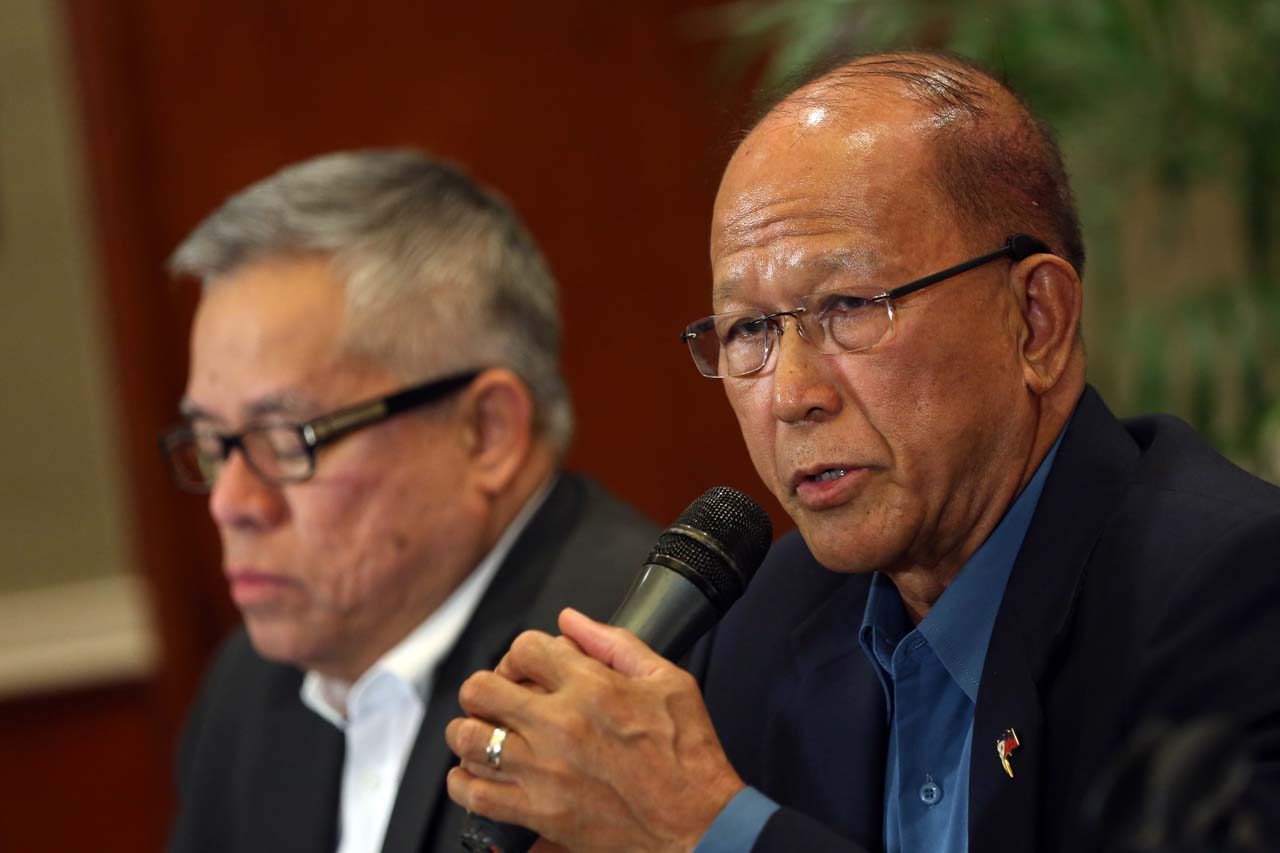SUMMARY
This is AI generated summarization, which may have errors. For context, always refer to the full article.

BEIJING, China – The Philippine government is set to sign a letter of intent to purchase defense assets from Poly Technologies Incorporated, one of China’s top state-owned defense manufacturing and exporting firms.
The document, according to Philippine Defense Secretary Delfin Lorenzana, will be signed on Monday, May 15, during Philippine President Rodrigo Duterte’s visit to Beijing to attend the Belt and Road Forum on International Cooperation.
“We will be signing tomorrow a document of intent only, it’s just a letter of intent to deal with them,” said Lorenzana during a press conference late Sunday, May 14.
The letter of intent was discussed during a courtesy call by Poly Technologies representatives with Duterte earlier that day. Lorenzana was present at the meeting.
The document signifies the Philippines’ interest to procure defense assets from the company which has offered a “wide array of defense equipment,” said Lorenzana.
To help the Philippines buy the defense assets, the Chinese government has offered a $500-million loan.
Lorenzana could not say what kind of equipment is likely to be purchased from Poly Technologies. Duterte instructed that he first consult with the Army, Air Force, and Navy.
But he did note that the military’s wishlist includes “airplanes, drones, fast boats.”
The fast boats would be especially useful for stopping kidnappings by bandit groups in the areas of Basilan, Tawi-Tawi, and Sulu, he said.
Not binding
The defense chief emphasized that the letter of intent is not binding. The Philippine government can decide whether or not it wants to buy from Poly Technologies after it assesses the defense equipment the company is offering.
He plans to send a technical working group to look at the company’s products within the next few months.
“We are going to send here the Philippines’ technical working group to look at the equipment and see what we need, and after that, we’ll go from there,” said Lorenzana.
Asked if he was concerned that Chinese defense equipment will not be compatible with equipment currently being used by the Philippine military, he said he has no such worries.
“For the compatibility, yes, we can because they also produce NATO specs, NATO standard specifications for their equipment,” Lorenzana said.
It’s also not set in stone that the Philippines will use the loan offered by the Chinese government.
Lorenzana prefers to spend funds allotted for the military’s modernization program.
“If we still have money, we will buy with our money. When we run out, that’s when we dip into their loan,” he said.
Lorenzana also gave assurances the Philippines will make sure not to purchase defective or substandard equipment.
“We won’t get anything that doesn’t work,” he said.
Dealing with despots
Poly Technologies, which started in 1983, is now among China’s biggest arms exporters.
It began as the subsidiary of state-owned investment company China International Trust and Investment Corporation, and continues to enjoy strong connections with China’s leadership.
Poly Technologies has been criticized by human rights groups like Amnesty International for exporting arms to conflict zones in Africa and for having no qualms about providing arms to authoritarian regimes.
“There’s been an effort to shine a spotlight on Poly’s failure to apply any kind of international human rights standards to their exports of weapons,” Frank Jannuzi, head of Amnesty International’s Washington office, was quoted as saying in a Public Radio International article.
In 2013, it was among the Chinese companies that were slapped with sanctions by the United States for violating the Iran, North Korea, and Syria Nonproliferation Act. – Rappler.com
Add a comment
How does this make you feel?
There are no comments yet. Add your comment to start the conversation.